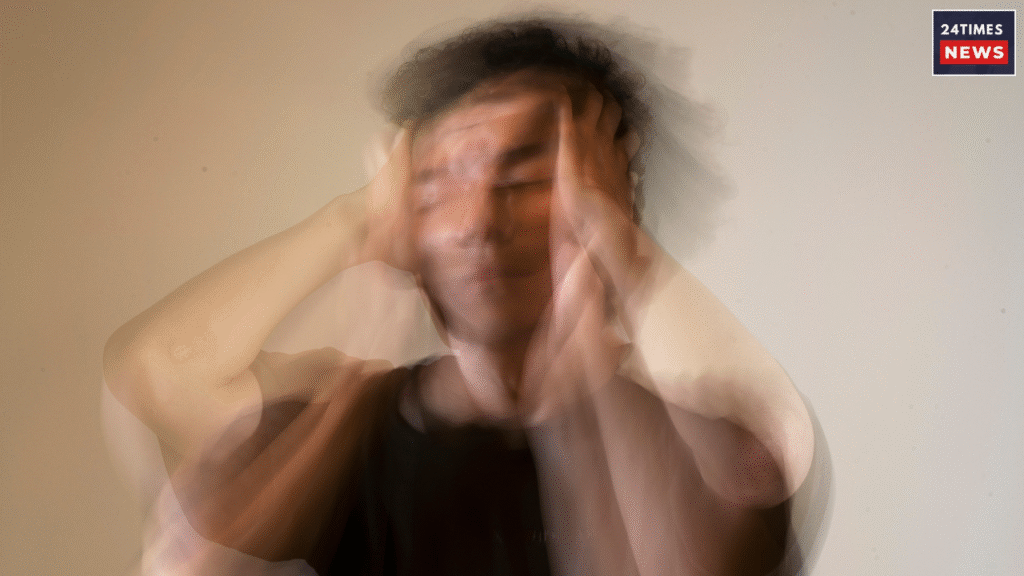Increasing stress, anger and inability to express the emotions often lead people to experience anxiety. In recent years, cases of anxiety and panic attacks have risen sharply. Anxiety can feel very uncomfortable and is sometimes mistaken for a heart attack. Many people don’t even realize what’s happening to them or why they feel this way. Anxiety itself is not dangerous but understanding its causes important. Common reasons include excessive stress, overthinking, work pressure, growing responsibilities and emotional suppression. To overcome anxiety, the first step is to identify what triggers it. Once you recognize the cause, try to avoid or manage that situation calmly. developing emotional awareness and expressing feelings can help in reducing anxiety and improving overall mental health.
Common Symptoms of Anxiety
Anxiety can affect both the mind and body, showing up through several noticeable symptoms. people often feel nervous, restless or uneasy without any clear reason. Breathing may become difficult and they might experience tension, dizziness or sleeplessness. Nausea, vomiting and stomach discomfort are also common signs. Many individuals feel constant tiredness, weakness and excessive sweating. In some cases, hands and feet may become cold or numb. A sudden increase in heartbeat or heart palpitations can also occur, making the person feel scared or alarmed. Along with these physical symptoms, feelings of sadness, lack of interest in daily activities, and difficulty focusing are often see. Recognizing these symptoms early can help in managing anxiety effectively.

Causes of Anxiety
The reasons behind anxiety can differ from person to person. it is important to identify when and under what situations your anxiety increases. Notice the moments when you start feeling uneasy or restless. Apart from personal triggers, there are some common causes that often lead to anxiety in daily life.
Feeling of suppression
When you are unable to express your thoughts or emotions, it creates a sense of suffocation inside. this unspoken stress builds up and can lead to anxiety. Holding emotions for too long increases tension, which affects both mental and physical health. Sharing your feelings openly can help reduce this inner pressure.
Stress and Life Pressure
Ongoing stress from personal or professional life can easily trigger anxiety. Family problems, relationship issues, work pressure, or financial worries often cause mental tension. when such situations pile up without relief, they make the mind restless and anxious, leading to frequent anxiety episodes or panic attacks.
Illness and health concerns
Sometimes, people suffering from a long-term illness or worried about their health tend to experience anxiety. the constant fear of medical reports, treatments or the health of loved ones can create ongoing stress. this continuous worry disturbs peace of mind and increases the risk of anxiety related problems.





